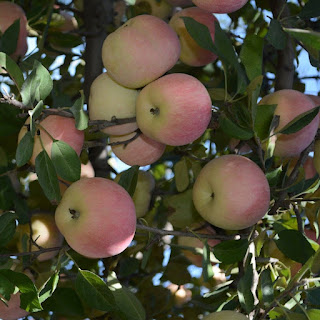Onions ( piyaz )
Onion a species of onions
Common Name:
- Piyaz
- Onion
- Ganda
- Bassal
- Wassal
- Shaloot
Botanical Name:
Allium cepa
Name Story:
Garden onion:
Cepa is commonly accepted in latin for "onion" and has an affinity with Ancient Greek. It is the most widely cultivated species of the genus Allium and many people treat it as a garden vegetable. Therefore, it is called the garden onion.
Symbolism:
Protection, Exorcism, Healing
Scientific classification:
Genus:
Allium - Onions, Garlics, Leeks
Family:
Amaryllidaceae - Amaryllis
Order:
Asparagales - Asparagus and allies, Agaves, orchids, irises, and allies
Class:
Liliopsida - Monocotyledons, Monocots
Phylum:
Tracheophyta - Vascular plants, Seed plants, Ferns, Tracheophytes.
Information:
Onion (Allium cepa) is an onion species commonly known for its ubiquitous culinary applications. The onion is toxic to a variety of animals. Aside from its many culinary uses, the onion is often used to teach students how to use a microscope because its cells are very large and easy to visualize.
Is onion poisonous to both dogs and cats?
Even though onion is widely used in human diet, it shouldn't be given to pets and other animals because it is poisonous to them.
Attract Birds:
Winter birds like to feast on the seeds of onion. Birds attracted to onion include buntings, doves, finches, quails, siskins, sparrows, and towhees. Smaller birds will perch on top of these root plants to eat the seeds directly from the flower. On some occasions, you might witness a hummingbird visiting, too
Characteristics:
Plant Type
Herb
Lifespan
Perennial, Annual, Biennial
Bloom Time
Summer
Plant Height
6 to 18 inches
Spread
6 to 12 inches
Flower Size
1 inch
Habitat
Cultivated Beds
Flower Color
White
Leaf Color
Green
Fruit Color
Brown,Black
Stem Color
Green,White,Brown,Cream
Conditions Requirement:
Difficulty Rating:
Growing Onion is easy as long as you can give them what they need. They are sensitive to certain types of pests and diseases.
Sunlight:
Full sun, Partial sun
Hardiness:
-20 ℉
Hardiness Zones
5
Soil
Sand, Loam, Chalky, Clay, Neutral, Alkaline
Care Guide:
Water:
Onion is sensitive to water requirements. You need to water them every week using a sprinkler or a hose. Alternatively, you can irrigate to a depth of 2.5 inches. Plus, make sure the soil is well-draining and does not make the roots soggy.
Fertilization:
Fertilization once every half month during the growing season.
Pruning:
Trim the dead, diseased, overgrown branches in winter.
Planting Time:
Spring
Harvest Time:
Summer
Propagation:
Sowing
Potting Suggestions:
Needs excellent drainage in pots.
Pests and Diseases:
White rot, rust, smut, downy mildew, white tip disease; onion fly, leek moth, onion leaf miner.
Uses:
Garden Use:
Onion is an easy-care onion variety that finds a popular place in many vegetable gardens. Its pretty tall-stalked flowers also bring eye-catching color to ornamental gardens. The flowers will attract bees, and they are lovely when cut for a vase. Leave room for natural propagation, but they pair well with wild grasses.




Comments
Post a Comment